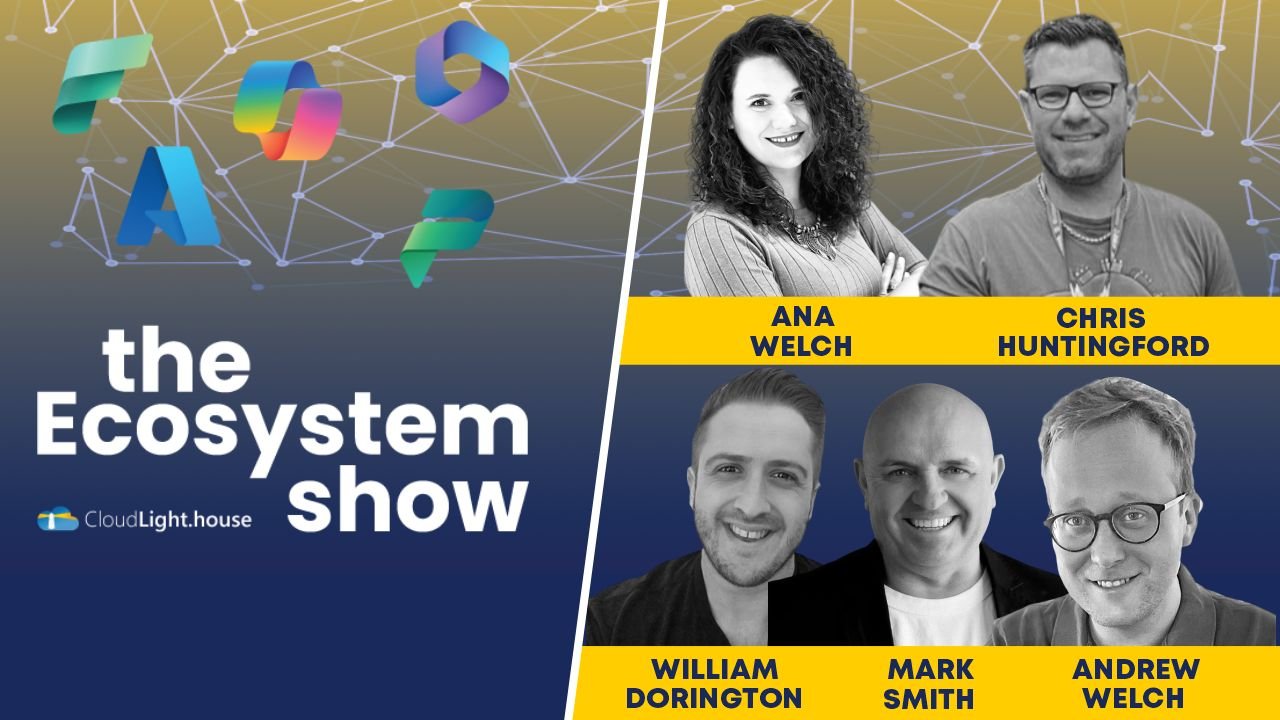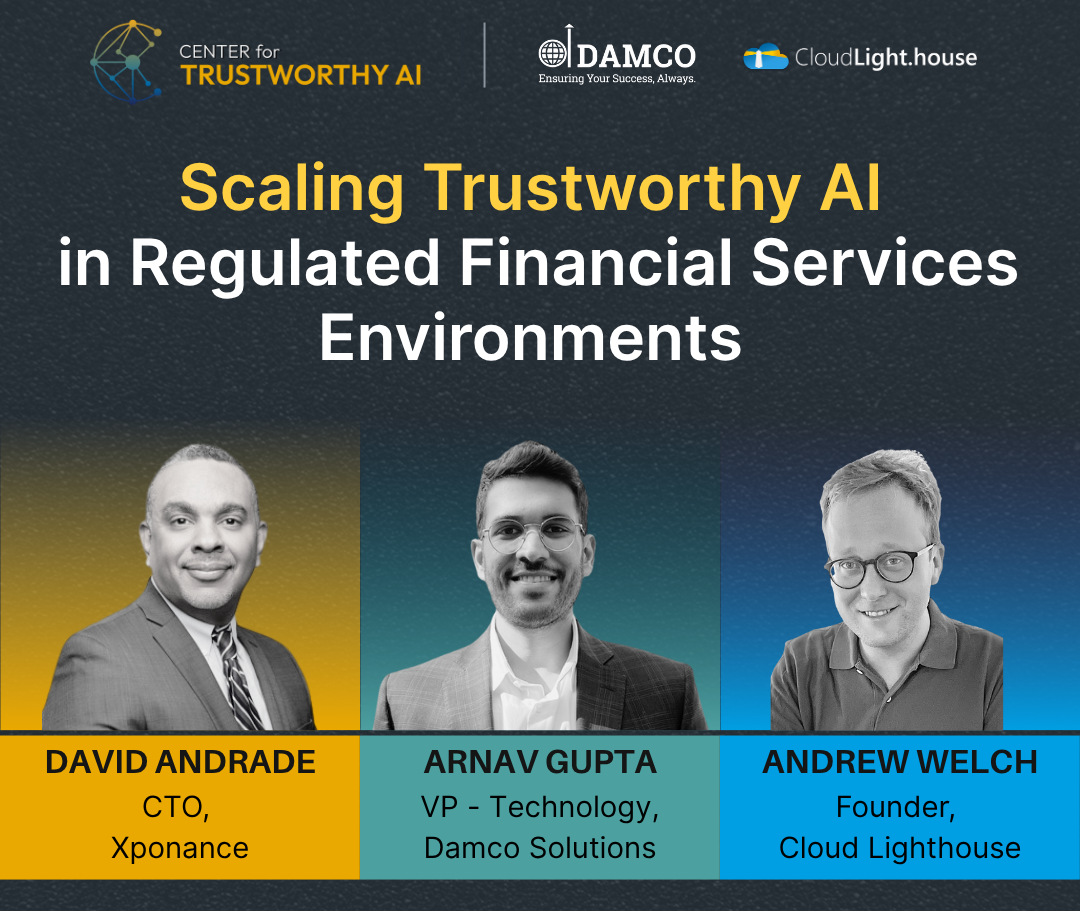
Unlocking AI's Promise Responsibly With Saidot
In this episode of Human in the Loop, we sit down with Meeri Haataja, CEO and co-founder of Saidot, to explore what responsible AI governance really looks like inside organizations. From navigating regulatory frameworks to embedding transparency and accountability into AI development, Meeri shares practical insights for businesses at every stage of their AI journey. Whether you're scaling a startup or steering enterprise innovation, her advice on aligning technical ambition with ethical clarity is essential listening.

Why Trustworthy AI Starts With All of Us: Podcast Launch
In this very first episode, hosts Chris Huntingford and Ioana Tanase talk with Altrese Hawkins-Gopie about what responsible AI really means, why it matters for everyone (not just techies), and how we can all play a part in building trustworthy AI.

The Role of Regulation in Trustworthy AI Innovation
Ana Welch and Andrew Welch recap the AI for Good Global Summit, emphasizing the need for responsible AI development. They explore how regulation can support innovation, highlight cultural biases in AI training, and stress the importance of collaboration between technologists and legal experts.

The Evolving Landscape of AI, a Conversation with Steve Mordue
In this conversation, Andrew Welch and Steve discuss the evolving landscape of AI, particularly focusing on the importance of Trustworthy AI, governance, and the role of data. They explore the challenges faced by organizations in adopting AI technologies, the concept of vibe coding, and the differing perspectives on AI, including optimism and skepticism. The discussion highlights the need for a balanced approach to AI implementation, emphasizing the importance of technical expertise and the potential pitfalls of relying solely on AI without proper understanding and governance.

Revolutionizing App Development: The Role of AI
Ana Welch and William Dorrington explore how AI is reshaping productivity, app development, and job roles in tech. They discuss agile delivery challenges, AI’s potential to refactor legacy code, and its impact on professional services- especially law. The conversation ends with reflections on work-life balance and the need for continuous learning.

Navigating the Regulatory Landscape: A Strategic Approach to Trustworthy AI
In this session, we will explore the complexities of the current regulatory environment surrounding AI technologies and provide a comprehensive framework for developing and implementing a trustworthy and responsible AI strategy within your organization.

Webinar | Scaling Trustworthy AI in Financial Services
Join us for a focused, high-utility conversation where Financial Services CIO and AI strategy leaders from Xponance, Damco, and Cloud Lighthouse unpack how to move beyond experimentation—and design AI programs that are governed, auditable, and business-aligned from Day 1.

Scaling Trustworthy AI in Regulated Financial Services Environments
Join us for a focused, high-utility conversation where Financial Services CIO and AI strategy leaders from Xponance, Damco, and Cloud Lighthouse unpack how to move beyond experimentation and design AI programs that are governed, auditable, and business-aligned from Day 1.

The Future Skillset: How to Work With AI Agents
Is your next teammate an AI agent? This episode explores the future of work in tech - from world models and red teaming to the rise of high-paying AI roles. Whether you build, lead, or strategize, you’ll walk away with insights to stay ahead in an AI-driven world.

Harnessing AI for Project Innovation
In this conversation, Andrew, Ana, Mark and Chris discuss the rapid adoption of AI technologies, innovative applications in various projects, and the importance of the human element in utilizing AI effectively. They explore different perspectives on AI, including optimism, denial, and rage, and delve into the fear and resistance to change that often accompany technological advancements. The conversation also touches on the implications of AI in education, highlighting both its potential benefits and challenges.

Trustworthy AI 101: The C-Suite’s 45-Minute Guide
New AI regulations and board-level scrutiny are arriving faster than most enterprises can adapt. In this executive briefing you’ll get a crash course on how to build, govern, and scale AI responsibly; without slowing innovation.

Exploring AI Perspectives: Optimists, Deniers, and the Angry Camp
Mark Smith and Andrew Welch share insights from the Dynamics Minds conference, highlighting how AI is reshaping tech. They describe three public mindsets - optimists, skeptics, and the resistant 'angry camp' - and discuss the need to adapt to emerging tools, touching on themes like technological inevitability and “vibe coding,” while reflecting on their early tech experiences.

Why Critical Thinking Is Your AI Superpower
In this episode, Ana and Andrew dive deep into the evolving landscape of AI, technology leadership, and the future of Microsoft partnerships. Discover why critical thinking is now a must-have skill in the age of AI, how to build a trustworthy AI practice, and what it takes to become a truly strategic Microsoft partner. Whether you're a consultant, executive, or tech professional, you'll walk away with actionable insights on future-proofing your career, navigating industry shifts, and leading with confidence in a rapidly changing digital world.

When the Lights Go Out, Learn AI
In this conversation, the hosts discuss their experiences at the ColorCloud conference, a significant power outage in Europe, and the implications of AI on the workforce. They share personal anecdotes, insights from recent events, and the evolving landscape of technology and work. The discussion emphasizes the need for adaptation and learning in a rapidly changing environment.

Exploring AI Ethics and Networking at Color Cloud
In this engaging conversation, the hosts delve into the importance of red teaming in AI development and the necessity of legal considerations in this evolving landscape. They explore the manipulation of AI models, particularly focusing on large language models (LLMs) and the ethical implications of such actions. They discuss the importance of red teaming in cybersecurity and the need for greater awareness of security risks in the business world as well as touching on the future of AI in business.

AI Policies: A New Era for Federal Agencies with AI’s Global Impact
The conversation covers recent US AI policies, highlighting responsible adoption. It compares US and European policy perspectives, then shifts to global AI competition, especially with China. The speakers discuss nationalism, AI's global impact, tech limitations, the role of memory, and delegation in AI systems. They also touch on Microsoft's Copilot and the need for clear messaging in the AI space.

Navigating Microsoft's AI Landscape and Evolution
The recent MVP Summit is examined, with a focus on Microsoft's evolving AI strategy and the implications of their Fabric platform. The future of business applications at Microsoft, the changing relationship between technology and legal considerations, and the importance of trust and governance in AI are explored. Additionally, the human rights implications of AI and the necessity for a more robust ethical framework as technology continues to advance are discussed.

Is AI over-hyped? Is this AI wave going to become something else?
The conversation covers a range of topics on creative design and branding for AI technology, concerns about human rights in AI, reflections on recent AI events, and the disconnect between AI technology creators and sellers regarding trustworthy AI. The participants emphasize the importance of innovation while maintaining awareness of ethical considerations in AI development. In this conversation, we explore the multifaceted implications of AI, emphasizing the need for a balance between innovation and ethical considerations. We discuss the potential underhyping of AI's capabilities, the socio-economic impacts on jobs, and the importance of education and awareness in navigating the evolving landscape of technology. The conversation highlights the risks associated with AI, including its capacity for surveillance and the necessity for trustworthy practices in its development.

Navigating the Challenges of Trustworthy AI
Various aspects of Trustworthy AI are examined, including the challenges of scaling AI solutions, the regulatory landscape surrounding AI, and the exploration of new AI tools and applications. Insights are shared on current projects, the importance of risk management in AI, and the potential impact of regulations on AI development and deployment.

The Critical Role of Education in AI Development
The evolving landscape of artificial intelligence (AI) is examined in this latest episode, emphasizing the significance of trustworthy AI, the imperative for critical thinking, and the cultural variances in education that influence cognitive abilities. The importance of questioning in effective communication and the necessity of addressing misinformation within the technology sector are underscored.
Additionally, the recent UK government documents on AI highlight the critical need to comprehend AI legislation, the essential skills and training required in the AI domain, and the innovative opportunities that AI presents. The legal ramifications of implementing AI solutions are explored, stressing the need for legal oversight and the importance of adhering to trustworthy AI practices to safeguard customer data.

